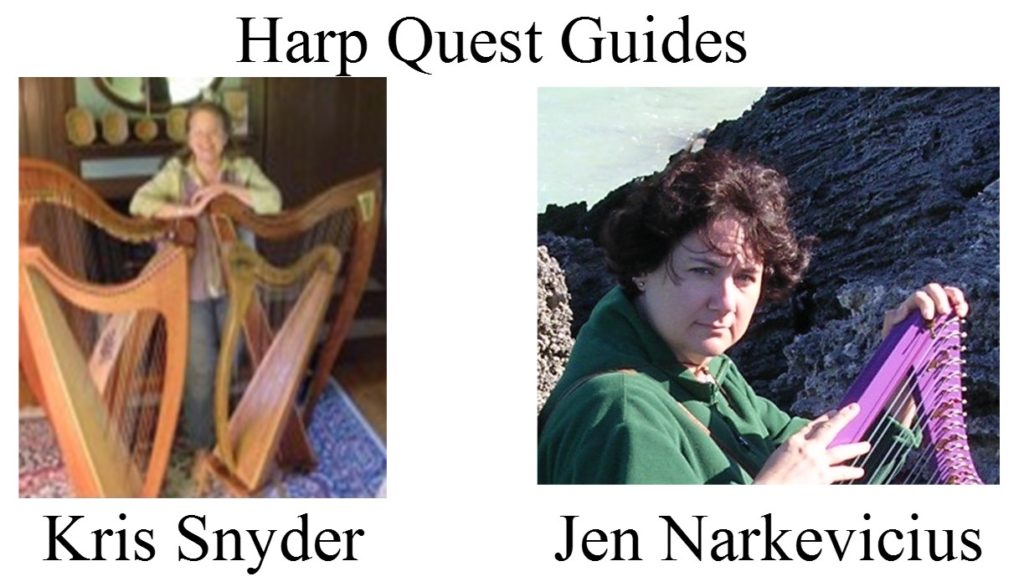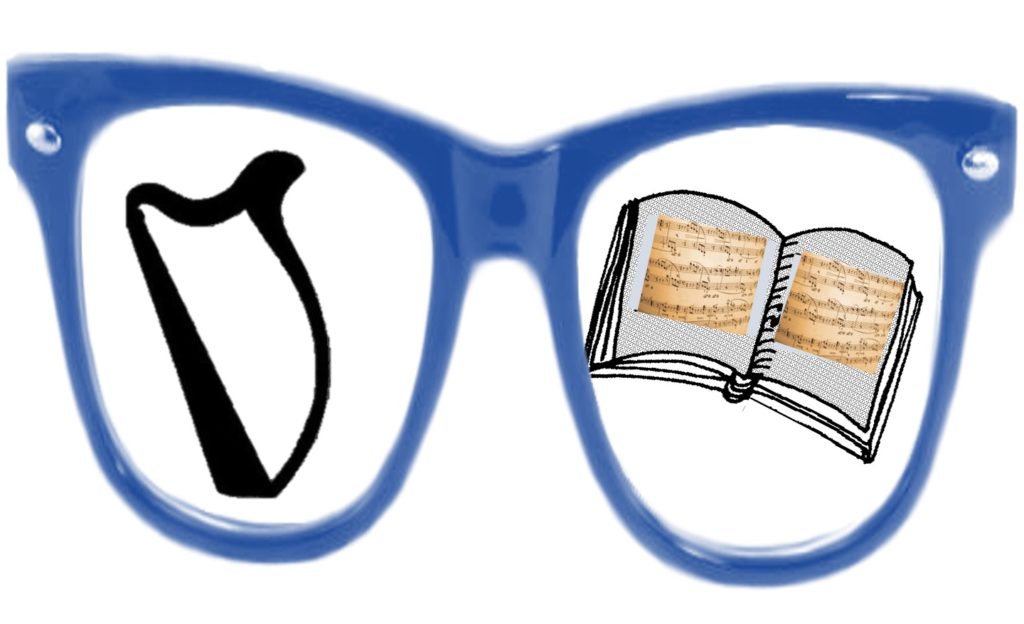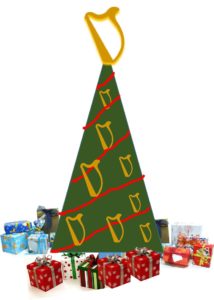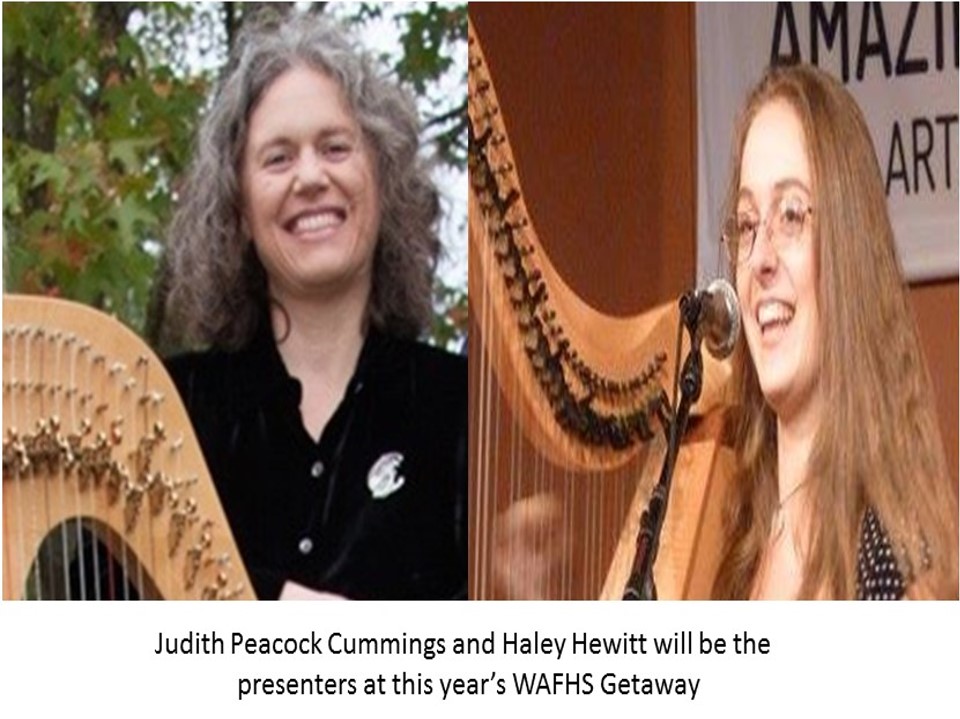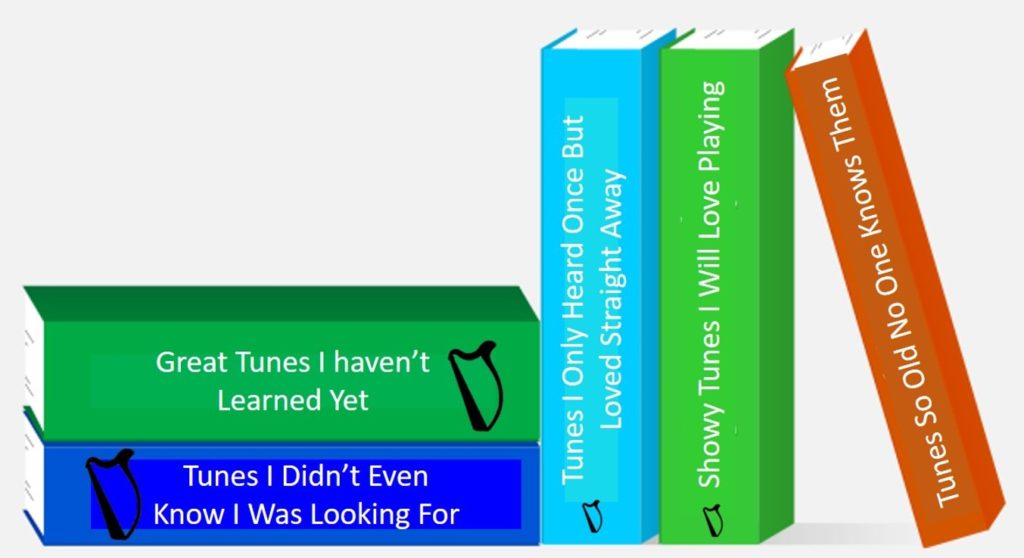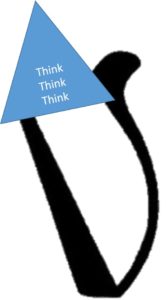The summer really gets started with the Ohio Scottish Arts School or OSAS, presented by the Scottish American Cultural Society of Ohio at Oberlin College in Oberlin, OH. Each summer, for one week, the residents of this small college town get the joy of nearly continuous harp music (as well as pipe, fiddle, and dance music with drumming too!).
This year marks the 39th OSAS and it will be held June 24-30, 2017. Really enhance the experience and kick off with participation in the Ohio Scottish Games the 23rd in Wellington, OH.
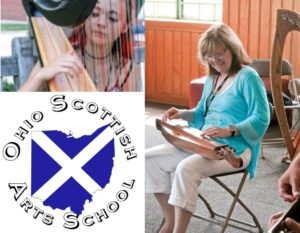 Coming to OSAS can be nearly a pilgrimage with some participants returning annually! The days are filled with learning tunes from stellar instructors in the aural tradition, lectures from those same instructors on other related and fascinating topics, and a little processing time to relax or practice. It’s harpharpharp! The evenings are filled with fun with the others jamming and sharing tunes we’ve learned, enjoying the evening air, snacks, and each evening also has a special event – the Instructor Concert, the Variety Show, every night, something wonderfully different and all OSAS.
Coming to OSAS can be nearly a pilgrimage with some participants returning annually! The days are filled with learning tunes from stellar instructors in the aural tradition, lectures from those same instructors on other related and fascinating topics, and a little processing time to relax or practice. It’s harpharpharp! The evenings are filled with fun with the others jamming and sharing tunes we’ve learned, enjoying the evening air, snacks, and each evening also has a special event – the Instructor Concert, the Variety Show, every night, something wonderfully different and all OSAS.
If you’ve been to OSAS before, you’re calculating how you’re going to get there this summer. If you’ve never been to OSAS before – you cannot conceive how much you are going to learn, how much fun you’re going to have, how much you are going to bore your non-OSAS friends with stories when you get home – for months! You will laugh, you will work hard, you will have a great time, and you’ll start counting down to your next OSAS experience the day you get home.
For all the details go to http://ohioscottishartsschool.com/
- Photos shamelessly stolen off the OSAS website – I’m always having too much fun to stop and take pictures!
